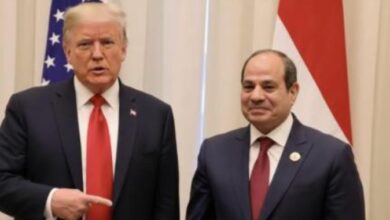Egypt said it was "amazed" by Ethiopia's suggestion on Tuesday that Cairo might turn to military action in a row over the Nile waters, saying it did not want confrontation and was not backing rebels there.
Egypt, Ethiopia and seven other countries through which the river passes have been locked in more than a decade of contentious talks driven by anger over the perceived injustice of a previous Nile water treaty signed in 1929.
Ethiopian Prime Minister Meles Zenawi told Reuters on Tuesday that Egypt could not win a war with Ethiopia over the River Nile and that Cairo was supporting rebel groups in an attempt to destabilize the Horn of Africa nation.
"I'm amazed … by the language that was used. We are not seeking war and there will not be war," Foreign Minister Ahmed Aboul Gheit told Reuters during a visit to Abu Dhabi.
His ministry said in a statement issued in Cairo: "The charges that Egypt .. is exploiting rebel groups against the ruling regime in Ethiopia are completely devoid of truth."
Egypt, almost totally dependent on the Nile and threatened by climate change, says the Nile waters feed a farm sector accounting for a third of all jobs. Cairo is wary of dam construction in upstream countries that could affect flows.
Ethiopia has built five huge dams on the Nile in the last decade and has begun work on a $1.4 billion hydropower facility.
Under the original pact Egypt is entitled to 55.5 billion cubic meters of water a year, the lion's share of the Nile's total flow of around 84 billion cubic meters, despite the fact that some 85 percent of the water originates in Ethiopia.
Ethiopia, Uganda, Tanzania, Rwanda and Kenya signed a new deal to share the waters in May.
In the statement that was e-mailed to Reuters, Foreign Ministry spokesman Hossam Zaki said it was "regrettable" that Ethiopia and other states had sought a new agreement.
"Egypt is firmly behind its legal and political positions on the issue of the Nile water," Zaki said, adding that Egypt had pursued dialogue and cooperation on the use of the Nile's water.
The five signatories of the new deal have given the other Nile Basin countries one year to join the pact before putting it into action. Sudan has backed Egypt while Democratic Republic of the Congo and Burundi have so far refused to sign.
The Egyptian spokesman added "We understand the frustrations of the Ethiopian party over the difficulties facing the Nile Basin agreement and initiative."
Egyptian Water Minister Mohamed Nasreddin Allam held talks in Cairo on Tuesday with Burundi officials on irrigation and other cooperation, his ministry said in a statement.
The Arab world's most populous nation fears population growth may outstrip water resources as early as 2017.




